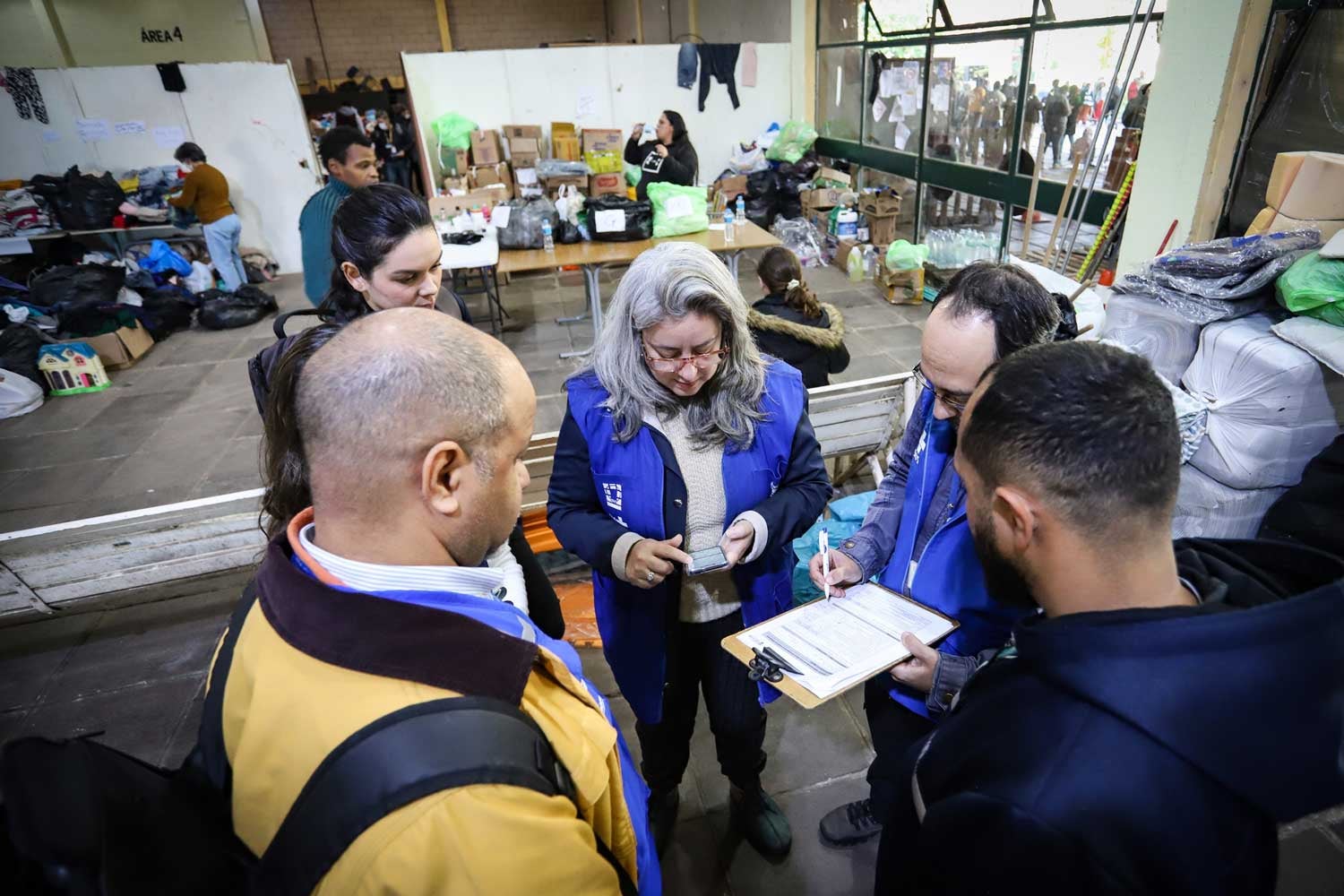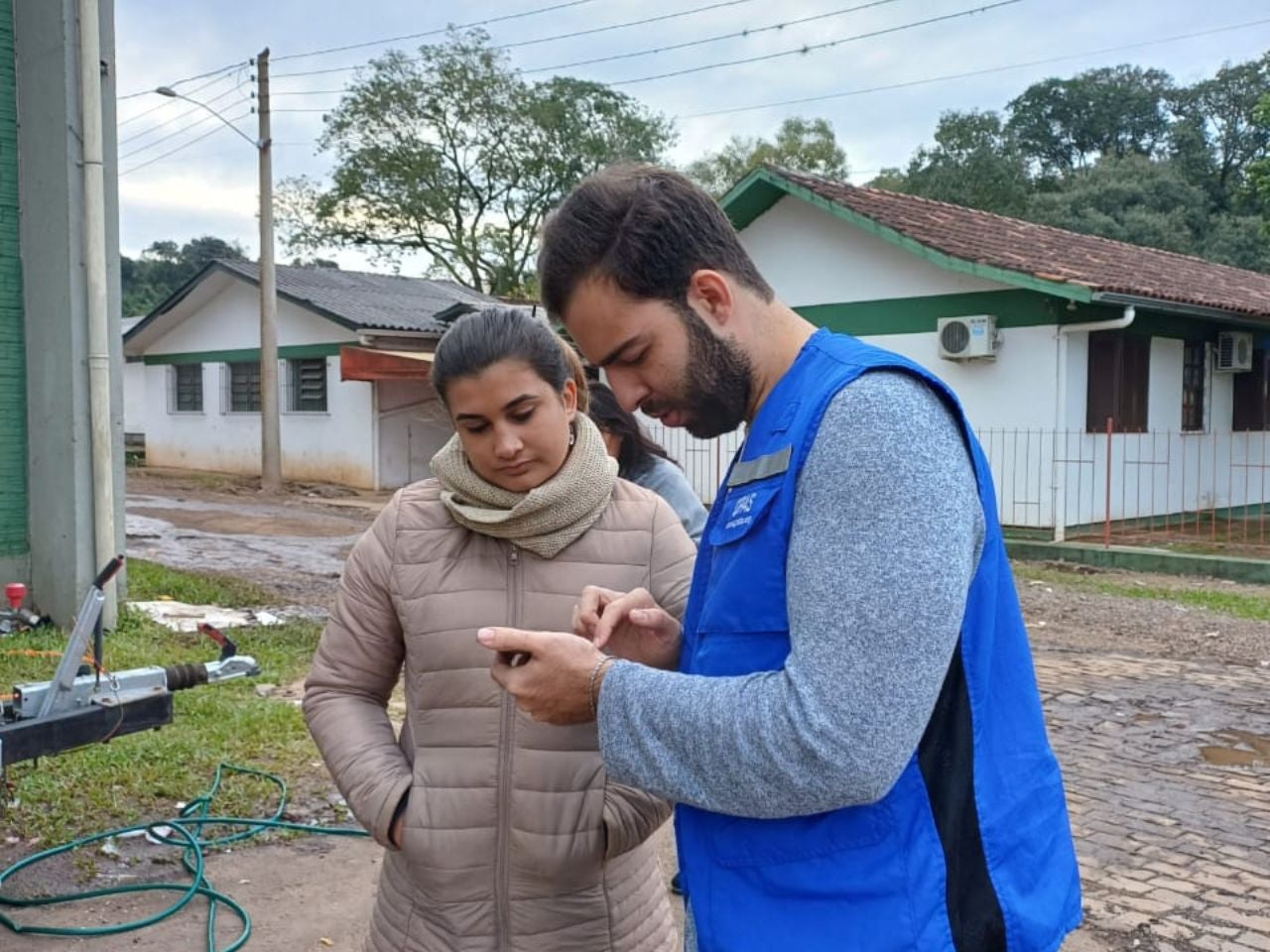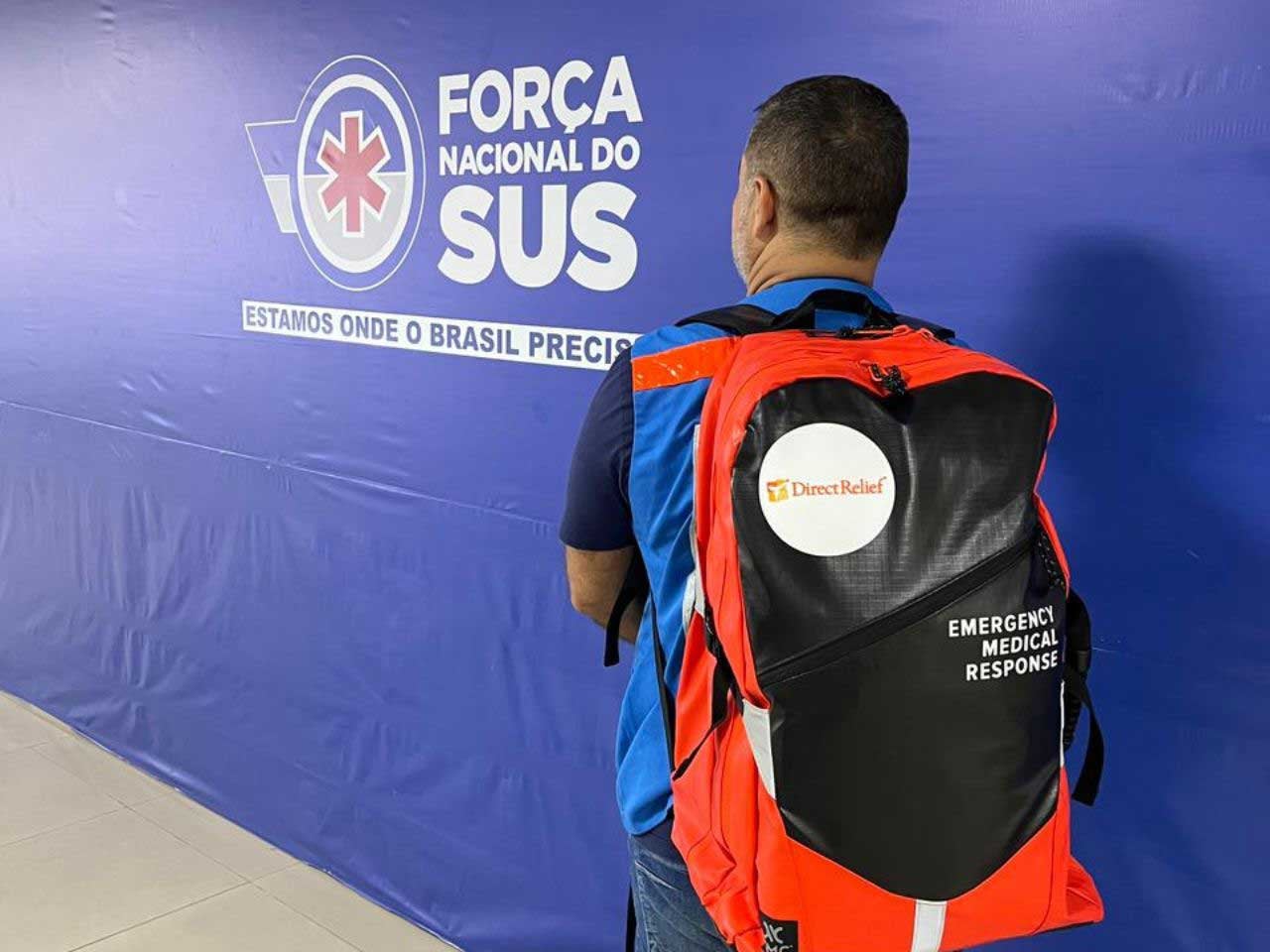
Brasília, 17 June 2024 – The Pan American Health Organization/World Health Organization (PAHO/WHO) has been working closely with the Brazil Ministry of Health of, the Rio Grande do Sul State Health Secretariat, the National Civil Defense and that of Rio Grande do Sul in actions to respond to the health needs of the populations affected by the floods that hit the state in late April and early May 2024.
Among the actions taken, is the support for epidemiological planning and analysis with the use PAHO/WHO early warning and response system (EWARS), as well as field activities in support of the local Emergency Operations Committee and other initiatives. The objective of EWARS is to facilitate early detection and rapid response to acute public health events of any origin, in situations where there is an interruption of the official systems already used in the country.
The application is used via a mobile application, that allows the user to supply the system with information that includes disease surveillance, community-based surveillance, environmental and ecological observations and health-related behavioral information, among others.
In Rio Grande do Sul, EWARS began to be used on 15 May for syndromic surveillance (of outbreaks or population risks) in indigenous shelters and villages. Overall, a total of 15 shelters were selected in eight municipalities, including Porto Alegre, the state’s capital.
The villages were selected based on the care criteria established by the National Unified Health System (SUS per its acronym in Portuguese) Force, a cooperation program by the Brazil Ministry of Health of aimed at emergency measures for preventing, assisting, and controlling epidemiological situations, disasters, or lack of assistance to the population.
EWARS is also being used for situational diagnosis of municipalities prioritized for monitoring by the National SUS Force.
For the use of the application, PAHO offered face-to-face and online training for all teams of professionals involved. The workers of the Rio Grande do Sul State Department and the Ministry of Health Secretariat of Indigenous Health (SESAI per its acronym in Portuguese) became instructors and began conducting out the training later.
Other actions
PAHO/WHO is also supporting the response to the emergency of Rio Grande do Sul with recommendations on immunization and the acquisition of vaccines through the Revolving Fund. Vaccines against hepatitis A, rabies, measles, mumps, rubella and meningitis ACWY are being purchased.
In the risk communication sector, the Organization has developed, together with the Ministry of Health, informative materials with guidelines on the necessary health care in flooded areas, actions to minimize risks, and recommendations of essential items to take in case of evacuation.
Among the common health events after floods are acute diarrheal diseases and leptospirosis infections because of exposure to contaminated water. Early and adequate treatment of these diseases can save lives. In cases of contaminated water after floods, prevention, disinfection, and communication measures are necessary.
PAHO/WHO also donated 100 emergency health backpacks, which were delivered to the National SUS Force, with anti-inflammatory, antipyretic, and analgesic drugs; water purifiers; alcohol; dressings; compresses; and protective equipment such as glasses, gloves, masks, and aprons; in addition to blood pressure monitor, thermometer, stethoscope, among others.
The supplies and equipment shipped in the backpacks can be used to address a variety of disaster-related health problems, including infection control, diagnostics, trauma care, and personal protection tools.






